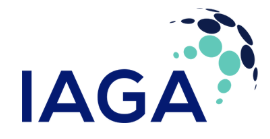2026 Chambers & Partners and The Legal 500: Harris Hagan ranked in top tier and awarded client satisfaction accolade
We are delighted to announce Harris Hagan’s top tier ranking in both Chambers and Partners and The Legal 500 for 2026.
Chambers & Partners
For the 22nd consecutive year, Harris Hagan retains its Band 1 ranking for Gaming.
“Harris Hagan’s vast experience within the gambling industry is first-class.”
Partners, John Hagan and Bahar Alaeddini, continue to be recognised in Band 1, and Partner David Whyte has been elevated to Band 2. Our congratulations also to Senior Associate, Jessica Wilson, who we are very proud to say has been recognised as an Associate to Watch, “an up-and-coming lawyer who has taken on the culture of Harris Hagan in providing excellent service”.
Positive testimonials include:
“Harris Hagan’s depth of expertise and breadth of experience means it is able to quickly digest and distil the complex and sophisticated questions faced by operators.”
“In the world of gambling law, John Hagan is a legend.”
“Bahar is an excellent partner; the advice she offers is always on point and she bridges the gap between regulation, business and culture effortlessly.”
“David Whyte’s advice is very clear, completely practical and hugely commercial. He totally understands the competing demands within an operator.”
“Jessica Wilson is really a dynamo and coming on fast.”
By invitation from Chambers, David Whyte and Jessica Wilson co-authored the UK-wide overview of the practice area for Chambers UK 2026.
The Legal 500
For the 22nd consecutive year, Harris Hagan retains its Tier 1 Ranking for Gaming and Betting.
“They are the leading gambling-focused law firm in the UK, combining unmatched regulatory expertise with deep industry insight. We value the team’s clarity, responsiveness and ability to navigate complex, evolving frameworks. The firm stands apart for its close engagement with regulators, clear communication, and collaborative ethos—helping clients stay ahead of change, not just react to it.”
Harris Hagan also receives a Client Satisfaction accolade, which is measured by The Legal 500 based on their “assessment of the complexity and significance of the work completed, the strength of practice and key individual professionals on the team, and peer and client endorsement… the elite of the profession in each practice area”.
Managing Partner, John Hagan, continues to be listed in The Legal 500’s Hall of Fame. Partners, Bahar Alaeddini and David Whyte and Senior Associate, Jessica Wilson, also retain their rankings as Leading Partner, Next Generation Partner and Leading Associate respectively.
Amongst our many positive testimonials:
“They are experts in gambling law. What makes the practice different is their strong, in-depth knowledge of how the Gambling Commission operates, making them invaluable for operators navigating a changing regulatory environment. They provide a quick service to solve issues and are always available in a crisis with cool, considered advice, which has always been accurate and actionable.”
“Working closely with David Whyte and John Hagan, they have both proved very knowledgeable in their field and provided excellent training for our company, including for executive-level senior staff.”
We have received two sessions of PML training as a team and the information that has been communicated from Bahar and the Harris Hagan team has been invaluable.”
In an ever changing and developing industry, clients of all varieties require not just the expected factual and legal accuracy, but a keen sense of where the boundaries are potentially moving and the opportunities and threats that these bring. Harris Hagan have been at the forefront of this and are a “go-to” firm for advice and support across this complex, multi-jurisdictional environment.”
“They are the pre-eminent specialist firm active in the UK casino and gaming sector and have been a leading player since their foundation 20 years ago. All of the partners and staff are focused on this single sector, which gives a degree of commercial awareness and technical skill not matched by other firms.”
We would like to extend our heartfelt thanks to all our clients, colleagues and friends to whom we are incredibly grateful for their continuing instructions and for helping us achieve these impressive rankings.




